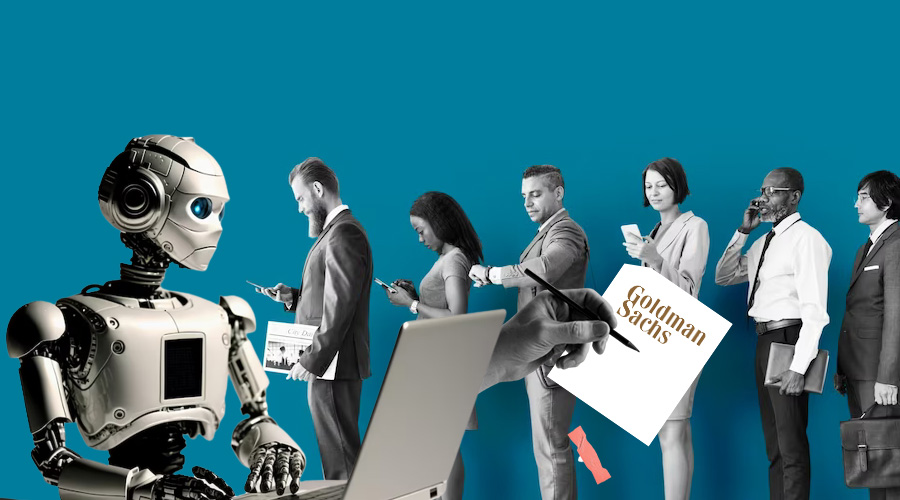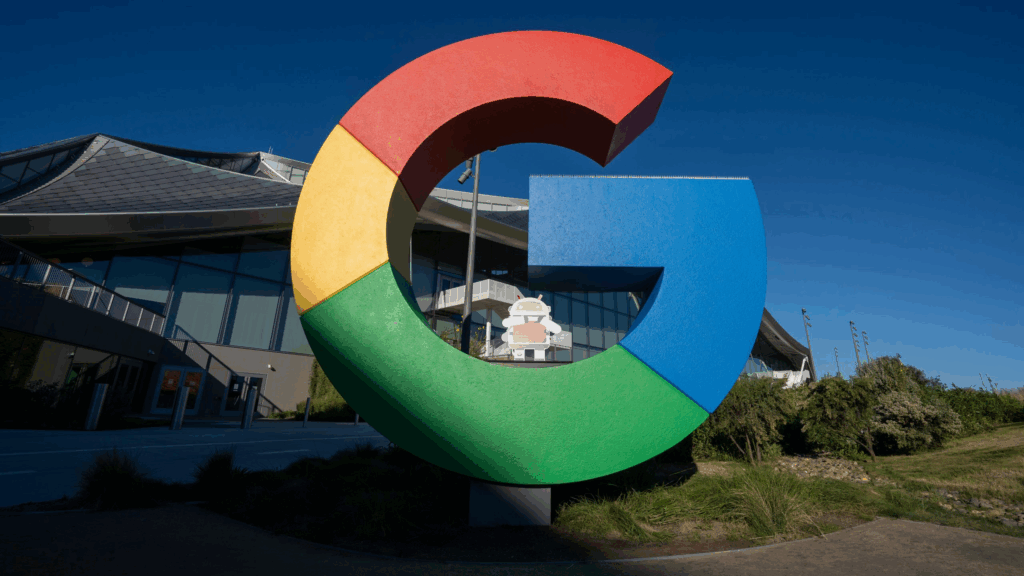Artificial Intelligence (AI) could replace the equivalent of 300 million full-time jobs, a report by investment bank Goldman Sachs says.
In the United States and Europe, it has the potential to eliminate one-quarter of all jobs while simultaneously creating new ones and boosting productivity.


And it has the potential to add 7% to the value of annual global production.
Generative AI, able to create content indistinguishable from human work, is “a major advancement”, the report says.
Employment prospects
The UK government has been trying to reassure the public while actively promoting investment in AI, citing the “ultimately drive productivity across the economy” benefit.
Technology Secretary Michelle Donelan was quoted in the Sun as saying, “We want to make sure that AI is complementing the way we work in the UK, not disrupting it — making our jobs better, rather than taking them away.”
The report notes AI’s impact will vary across different sectors – 46% of tasks in administrative and 44% in legal professions could be automated but only 6% in construction and 4% in maintenance, it says.
According to a report by BBC News, some artists are worried that AI image generators will take away their jobs.
Reduced pay
“The only thing I am sure of is that there is no way of knowing how many jobs will be replaced by generative AI,” Carl Benedikt Frey, future of-work director at the Oxford Martin School, Oxford University, told BBC News.
For example, what ChatGPT facilitates is the production of essays and articles by more people with merely adequate writing skills.
Unless there is a dramatic increase in the demand for journalists’ services, they can expect increased competition and lower pay.
“Consider the introduction of GPS technology and platforms like Uber, which rendered prior knowledge of London’s streets largely obsolete, leading to significant wage cuts for incumbent drivers—around 10%, according to our research.
Instead of fewer drivers, lower wages were the result.
As generative AI develops, it’s expected to have a similar impact on a wider variety of creative tasks in the coming years.
‘Pinch of salt
Sixty percent of the working population now holds jobs that did not exist in 1940, according to studies cited in the report.
However, other studies show that technological advancements since the 1980s have eliminated jobs at a faster rate than they have created them.
The report warns that generative AI may hurt employment in the near future if it follows the same trends as other IT advancements.
Torsten Bell, CEO of the Resolution Foundation think tank, told BBC News that “all firm predictions should be taken with a very large pinch of salt” because of the uncertainty surrounding AI’s long-term effects.
When asked about the future of the industry, he said, “We do not know how the technology will evolve or how firms will integrate it into their work.”
That’s not to say AI won’t change how we work; it will. But we need to keep in mind the benefits of increased productivity at work and lower operating costs for essential services, as well as the risks of falling behind if other businesses and economies adapt to new technologies more quickly.




